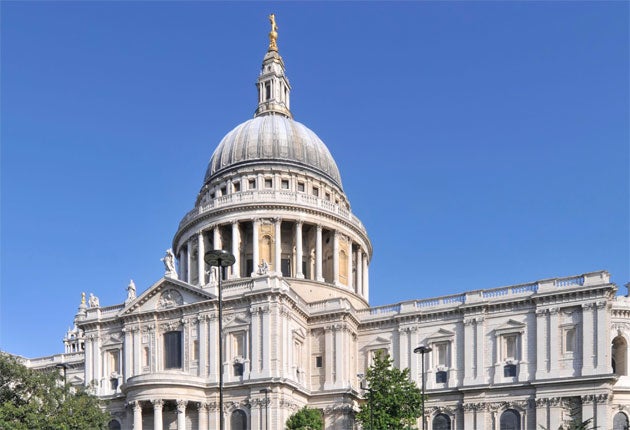Warning: Do not take this picture
Police warned over misuse of terror laws to stop innocent photographers

Police have been accused of misusing powers granted under anti-terror legislation after a series of incidents, ranging from the innocuous to the bizarre, in which photographers were questioned by officers for taking innocent pictures of tourist destinations, landmarks and even a fish and chip shop.
Police are allowed to stop and search anyone in a designated "Section 44 authorisation" zone without having to give a reason. But amateur and professional photographers have complained that they are frequently being stopped and treated as potential terrorists on a reconnaissance mission. Last night the Government's independent reviewer of anti-terrorism laws warned police forces to carefully examine how they use the controversial legislation.
Speaking to The Independent, Lord Carlile of Berriew said: "The police have to be very careful about stopping people who are taking what I would call leisure photographs, and indeed professional photographers. The fact that someone is taking photographs is not prima facie a good reason for stop and search and is very far from raising suspicion. It is a matter of concern and the police will know that they have to look at this very carefully," he added.
Lord Carlile's comments come just days after a BBC journalist was stopped and searched by two police community support officers as he took photographs of St Paul's Cathedral. Days earlier Andrew White, 33, was stopped and asked to give his name and address after taking photographs of Christmas lights on his way to work in Brighton.
And in July Alex Turner, an amateur photographer from Kent, was arrested after he took pictures of Mick's Plaice, a fish and chip shop in Chatham.
Most of those stopped are told they are being questioned under Section 44, a controversial power which allows senior officers to designate entire areas of their police force regions as stop-and-search zones. The areas are chosen based on their likelihood of being a terrorism target.
More than 100 exist in London alone, covering areas such as the Houses of Parliament, Buckingham Palace and other landmarks. Every train station in the UK is covered by a Section 44 order. In the first quarter of this financial year 96 per cent of all Section 44 searches were carried out by the Metropolitan Police and the British Transport Police. Every area of the UK which has a Section 44 in place is known to the Home Office. But, due to the fear that the information could be used by terrorists to plan attacks, most of the the exact locations covered by Section 44 authorisations are kept secret, meaning members of the public have no idea if they are in one or not.
Martin Parr, a photojournalist who was threatened with arrest after he took pictures of revellers in Liverpool city centre, said: "Unless we do something to stop this trend it will become virtually impossible to take photographs on a British street."
The British Journal of Photography says it has received a steadily increasing number of complaints this year. Olivier Laurent, the magazine's news editor, said: "The person will normally be taking a photograph of something perfectly mundane and a police officer will approach them and either claim that they can't take photos in that particular place or they will ask the photographer to explain what they are up to and record their details.
"Those who refuse to co-operate have been threatened with arrest for either breaching the peace or impeding the public highway. We find that a lot of the time police officers are not even aware of the rules governing photography in a public place."
Marc Vallee, a photojournalist who specialises in documenting protests, has become so exasperated at how often photographers are questioned or searched by officers that he has co-founded a campaign group to keep tabs on how public photography is being policed. The "I'm a photographer, not a terrorist" campaign group now has more than 4,000 supporters and has held a number of protests, including outside Scotland Yard, to highlight what they believe is the growing harassment of amateur and professional photographers by police and over-zealous council officials.
"Why is the act of taking a picture deemed by the state to be so potentially threatening? Photography is not a crime but it is being routinely criminalised," he said. "Anti-terrorism legislation talks about creating a hostile environment for terrorists to operate but the reality is that it is creating a hostile environment for public photography. That has an incredibly detrimental effect on freedom of speech."
Craig Mackey, who speaks for the Association of Chief Police Officers on stop-and-search legislation, said he does have sympathy for photographers, but said that part of the problem was that some officers were not aware how best to use the "complex" legislation. He said: "It goes back to the issue of briefing and training of staff and making sure they are clear around the legislation we are asking them to use. There is no power under Section 44 to stop people taking photographs and we are very clear about getting that message out to forces.
"In the past there has been a build-up around photographers and policing. That said, it is difficult to imagine a scenario where someone taking pictures of Christmas lights would be something we should be dealing with."
Join our commenting forum
Join thought-provoking conversations, follow other Independent readers and see their replies
0Comments